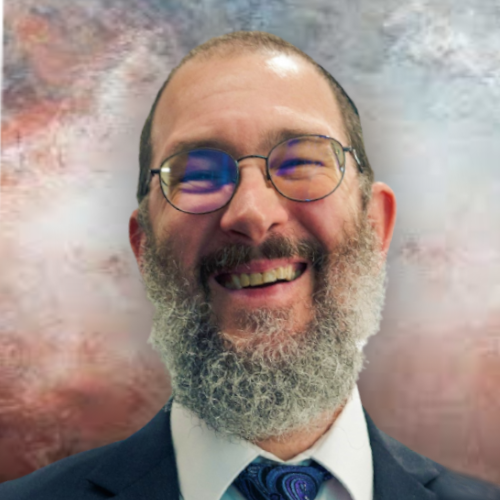
"Well, it's one for the money, two for the show, three to get ready, now go, cat, go!"
Back when Elvis Presley sang those lyrics in 1956, "cat" had already been established for decades as popular slang for "person." But how many Gen Zers would recognize the expression today?
Language relentlessly evolves (or devolves); slang terms fall in and out of fashion. As Judy Collins sang, something's lost, but something's gained in living every day. There's no reason to mourn such colloquialisms as "boss, gnarly, fuzz, gas," and "bummer" when they vanish into the waste bin of linguistic history.
On the other hand, retaining our familiarity with bygone societal touchstones can deepen our connection with the past and enrich our sense of cultural continuity. By losing all knowledge of once-common terminologies, we might one day find Beatles lyrics as impenetrable as verses from "The Canterbury Tales."
Forget what it means to "get it on film?" You won't understand Paul Simon's ironic paean to photographic manipulation in "Kodachrome." Forget why placing a long-distance call once proved so expensive and onerous? You won't grasp Jim Croce's lament to lost love in "Operator."
So, too, when Roger Miller tells us that "two hours of pushin' broom buys an eight-by-twelve foot four-bit room" in "King of the Road," he does more than recount the life of a hobo. He also transports us back to an age when the indigent would cut a silver dollar coin into eighths and stretch each "bit" to pay for the barest of necessities of life.
To sound like a broken record means little in the days of digital recording. But those of us old enough to remember the frustration caused by scratched vinyl can't imagine a more evocative expression for relentless repetition. The resurgent popularity of traditional LPs may come from an appreciation for aural authenticity, but it also preserves the fragrance and flavor of a transformative historical era.
There is a relentless tension between linguistic evolution and tradition, which brings us to this week's entry into the Ethical Lexicon:
Gadzookery (gad*zook*er*y/ gad-zoo-kuh-ree) noun
The use or overuse of period-specific or archaic expressions, as in a historical novel.
Despite Santayana's overquoted observation that forgetting history condemns us to repeat it, we still fail to recognize how reflecting on our past enables us to appreciate the present. Rather than responding with gratitude for living in an age of unprecedented prosperity, we endlessly bewail reality's refusal to live up to our utopian expectations.
A mere century ago, doing the laundry was an all-day ordeal, communication depended on hand-written letters, and few people ever traveled beyond their city limits. Life spans, literacy, quality of healthcare, and standards of living have continued to rise. Science fiction writers imagined interstellar spacecraft and time travel, but no one predicted the cellphone; neither did they foresee frenzied battles over the use of pronouns.
We have built our good fortune on the social, economic, and technological foundations laid by our forebearers. If so, don't we have an ethical obligation to remember their struggles and honor the fundamental values from which we so richly benefit?
In my book "Dawn to Destiny," I recount the story of a young man traveling north from Jerusalem who came to a crossroads. To his dismay, the signpost showing directions lay uprooted upon the ground. The arrow marked "Tiberius" pointed straight up to the sky.
But the young man did not hesitate. He seized hold of the signpost and lifted it upright. True, he did not know which road led where he wanted to go, but he did know the way he had come. He pointed the arrow marked "Jerusalem" back along the road he had traveled, then confidently set off following the arrow that pointed to his destination.
A bit of gadzookery connects us to our past, which orients us so we can successfully navigate our way into the future.
By the way, the word "gadzooks" was first used in the 17th century as an expression of surprise or annoyance and a mild oath, possibly deriving from "God's hooks," the nails of the Crucifixion. In case you were wondering.
Rabbi Yonason Goldson graduated from the University of California at Davis with a degree in English, which he put to good use by setting off hitchhiking cross-country and backpacking across Europe. He eventually arrived in Israel where he connected with his Jewish roots and spent the next nine years studying Torah, completing his rabbinic training as part of Ohr Somayach's first ordination program. After teaching yeshiva high school for 23 years in Budapest, Hungary, Atlanta, Georgia, and St. Louis, Missouri, Rabbi Goldson established himself as a professional speaker and advisor, working with business leaders to create a company culture built on ethics and trust. He has published seven books and given two TEDx Talks, is an award-winning host of two podcasts, and writes a weekly column for Fast Company Magazine. He also serves as scholar-in-residence for congregations around the country.
Previously:
• Are We Making Failure the Price of Success?
• Demoralization Is More About Culture than Feelings
• The Lesson We're Missing From the Death of Charlie Kirk
• Invest in Your Own Success by Building Up Others
• The Most Valiant Heroes Fight on a Different Battlefield
• How Pundits Came to Give Punditry a Bad Name
• The Wisdom of Knowing What You Don't Know
• Success Thrives in the Light of Purpose and Passion
• When Seeking Peace, Don't Release the Dogs of War
• Greta Thunberg Sails Toward Moral Hypocrisy
• Checking More Boxes Is Not the Solution
• Why Sometimes NOT Seeing Is MORE Believing
• A Healthy Diet for the Brain Promotes Ethical Clarity for the Mind
(COMMENT, BELOW)


 Contact The Editor
Contact The Editor
 Articles By This Author
Articles By This Author